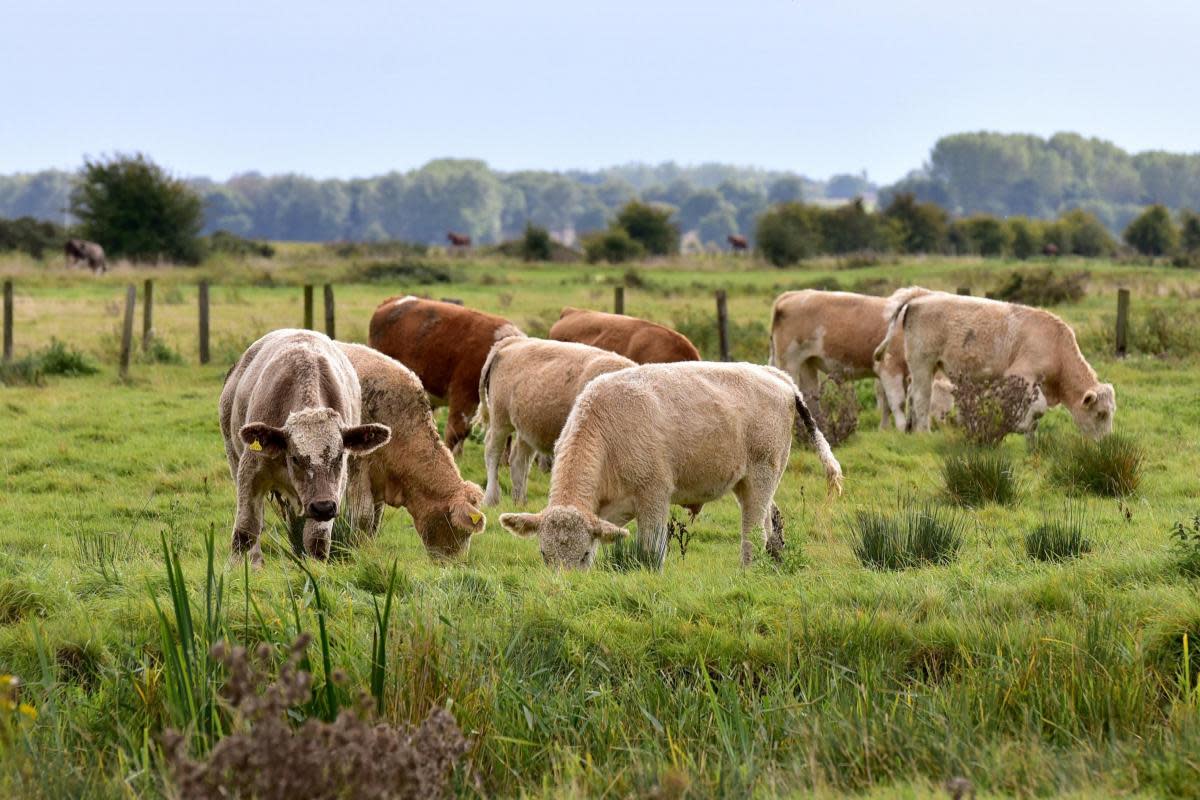Questions from UK livestock farms after bluetongue vaccine approved in Holland

A vaccine against the dangerous bluetongue livestock virus has been approved in Holland - prompting questions over the potential roll-out in high-risk UK areas like East Anglia.
Dozens of cases of the potentially-fatal animal disease were found in Norfolk cattle and sheep during the winter, following the enforcement of a 10km control zone centred near Cantley, where the county's first case was confirmed on December 8.
To the relief of livestock farmers, those restrictions on animal movements were eased in February, after the cold weather had lessened the risk of midges spreading the virus.
But last month Defra confirmed that this "seasonal low vector period" has now ended, as the warmer weather brings an increased threat of biting midges being blown across the sea from northern Europe.
That leaves farms in coastal counties like Norfolk and Suffolk vulnerable to virus outbreaks until a vaccine is available.
Now, in the Netherlands, a fast-tracked procedure has authorised a vaccine for the bluetongue virus serotype 3 (BTV-3), produced by Spanish pharmaceutical company, Syva.
Two million doses have initially been made available to help Dutch sheep and cattle farmers still reeling from the outbreaks which decimated their industry in 2023, when 6,000 cases were recorded and 5pc of the country's sheep population was lost.
The National Farmers' Union (NFU) said the new vaccine will be welcome news to British livestock farmers - although there are still questions over rollout plans for the UK.
NFU livestock board chairman David Barton said: “It’s good to hear that a vaccine for BTV-3 has been authorised for use in the Netherlands and we anticipate it being available for use in the UK once authorised.
"This disease has had a devastating impact in the Netherlands and UK livestock farmers will be anxious to protect their livestock as the weather gets warmer.
“As this is a very new vaccine, there are still questions to be answered – not least about the cost of the vaccine, how it will be rolled out, and what support the government can offer to get it deployed quickly and efficiently.”
Bluetongue does not affect human health or food safety. The virus affects ruminants including cows, sheep and goats, and camelids such as llamas.
Livestock keepers must report suspicions of the virus immediately to the APHA on 03000 200 301.
For advice on symptoms and disease restrictions, see www.gov.uk/guidance/bluetongue.

 Yahoo News
Yahoo News 
